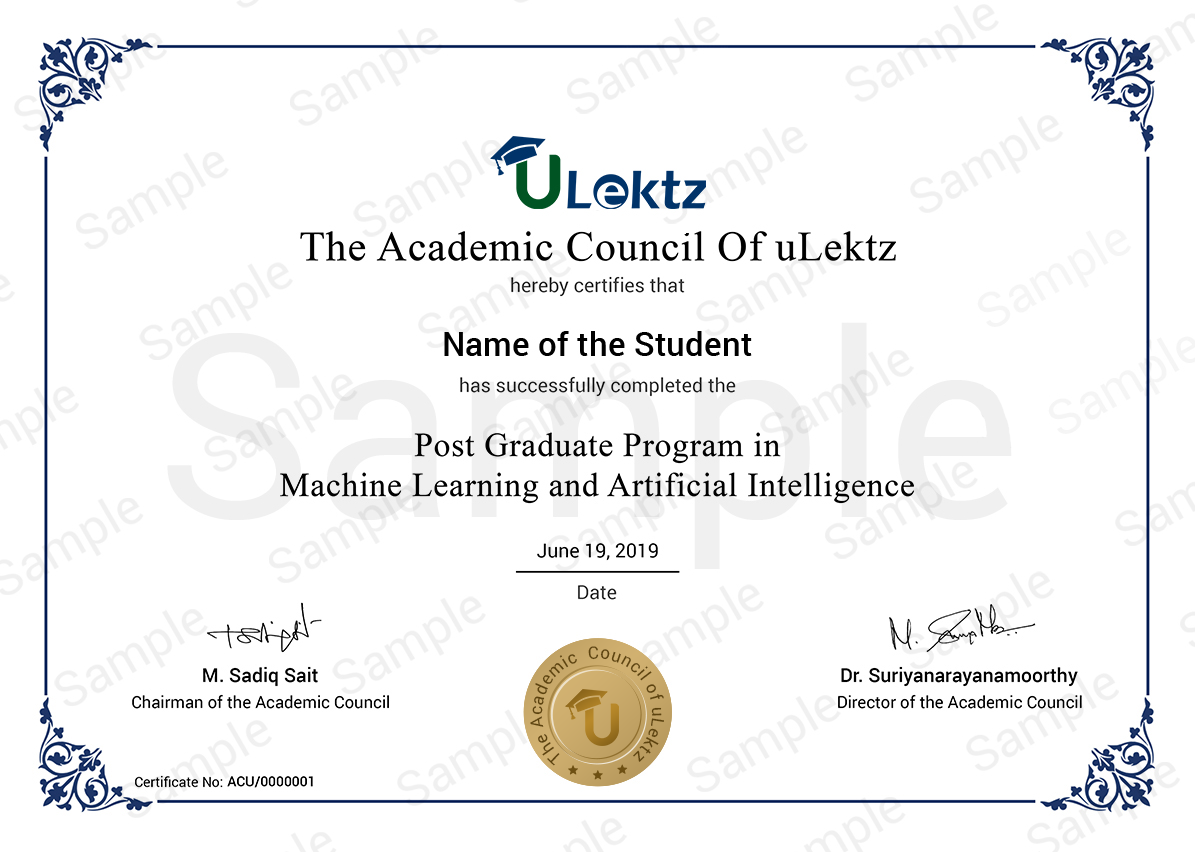

Note: Please check your Spam or Junk folder, in case you didn't receive the email with verification code.
Non-Linear: Random Order
Course Description
Managing people is the very important part of Business and understanding fundamentals of behaviour dynamics is very important in today’s scenario. This is the core course from UGC approved curriculum for all who are interested in learning Human Side of the organization. The goal of offering this course is to familiarize the students with the Individual and Group Behaviour fundamentals and practices and develop their analytical skills, conceptual abilities and substantive knowledge in the field. It seeks to achieve the objective by helping the participants to undergo meaningful exercises in decision making in a variety of real life situations. The course will focus upon the human side behavior of the organization. It will enhance awareness of the students to dynamics of Individual, Group and Organizations. The covers a wide breadth of theories and applications dealing with topics like perception, motivation, decision making, team dynamics, negotiation, conflict management, leadership, and organizational culture. Different sessions during course will create a sense of progression for the learner. Each session builds upon previous lessons by starting at the individual level, then moving on to a team level, and finally adopting an organization-wide level of analysis.
Course Objective
At the end of the course, the students shall be able to:
1) To understand Fundamentals of Behaviour dynamics in an organization.
2) To increase understanding of the important issues pertaining to individual and group behavior aspects in an organization.
3) To acquaint the students with the appropriate concepts, theories, models and other tools to make better understanding of behavioral dynamics.
4) To understand the latest developments and cultivate an understanding of organizational culture and structure.
5) To understand applications of organizational change, power and conflict.
Learning Outcome
At the end of the course students will be able to have clarity of fundamentals of organizational behaviour, individual behaviour, group behaviour, behavioural dynamics in organization, organizational culture and structure, organizational change, conflict and power. Thus, at the end of the course student will be able to understand different dynamism in organization.
.
 1.1 Fundamentals Of OB, Definition, Scope and Importance Of OB
1.1 Fundamentals Of OB, Definition, Scope and Importance Of OB
 1.2 Evolution Of OB
1.2 Evolution Of OB
 1.3 Disciplines Contributing To OB
1.3 Disciplines Contributing To OB
 Fundamentals Of OB - Assessment
10 Questions
Fundamentals Of OB - Assessment
10 Questions
 2.1 Attitude, Personality and values, Perception and Motivation
2.1 Attitude, Personality and values, Perception and Motivation
 2.2 Developing Emotional Intelligence At The Workplace
2.2 Developing Emotional Intelligence At The Workplace
 2.3 Personality And Values
2.3 Personality And Values
 2.4 Significant Personality Traits Suitable To The Workplace
2.4 Significant Personality Traits Suitable To The Workplace
 2.5 Perception
2.5 Perception
 2.6 Motivation
2.6 Motivation
 2.7 The Process Theories
2.7 The Process Theories
 2.8 The Big Five Personality Model
2.8 The Big Five Personality Model
 Attitude - Assessment
10 Questions
Attitude - Assessment
10 Questions
 3.1 Foundations of Group Behavior, Managing Teams and Leadership
3.1 Foundations of Group Behavior, Managing Teams and Leadership
 3.2 Managing Teams
3.2 Managing Teams
 3.3 Leadership
3.3 Leadership
 3.4 Contemporary Leadership
3.4 Contemporary Leadership
 3.5 Group & Work Team
3.5 Group & Work Team
 Foundations Of Group Behavior - Assessment
10 Questions
Foundations Of Group Behavior - Assessment
10 Questions
 4.1 Organizational Culture - Meaning & Definition of Organizational Culture
4.1 Organizational Culture - Meaning & Definition of Organizational Culture
 4.2 Types of Culture
4.2 Types of Culture
 4.3 How People Respond To Organisational Politics
4.3 How People Respond To Organisational Politics
 4.4 Power & Politics
4.4 Power & Politics
 4.5 Culture & Consumer Behaviour
4.5 Culture & Consumer Behaviour
 Organizational Culture - Assessment
10 Questions
Organizational Culture - Assessment
10 Questions
 5.1 Organizational Change: Meaning, Definition & Nature of Organizational Change
5.1 Organizational Change: Meaning, Definition & Nature of Organizational Change
 5.2 Implementing Organizational Change
5.2 Implementing Organizational Change
 5.3 Leading the Change Process, Facilitating Change
5.3 Leading the Change Process, Facilitating Change
 5.4 Methods of Implementing Organizational Change
5.4 Methods of Implementing Organizational Change
 5.5 Organizational Conflict
5.5 Organizational Conflict
 Organizational Change - Assessment
10 Questions
Organizational Change - Assessment
10 Questions
 Final Assessment
20 Questions
Final Assessment
20 Questions
The certificate issued for the Course will have
Only the e-certificate will be made available. No Hard copies. The certificates issued by The Academic Council of uLektz. can be e-verifiable at www.ulektzskills.com/verify.



 50 hours Learning Content
50 hours Learning Content 100% online Courses
100% online Courses English Language
English Language Certifications
Certifications